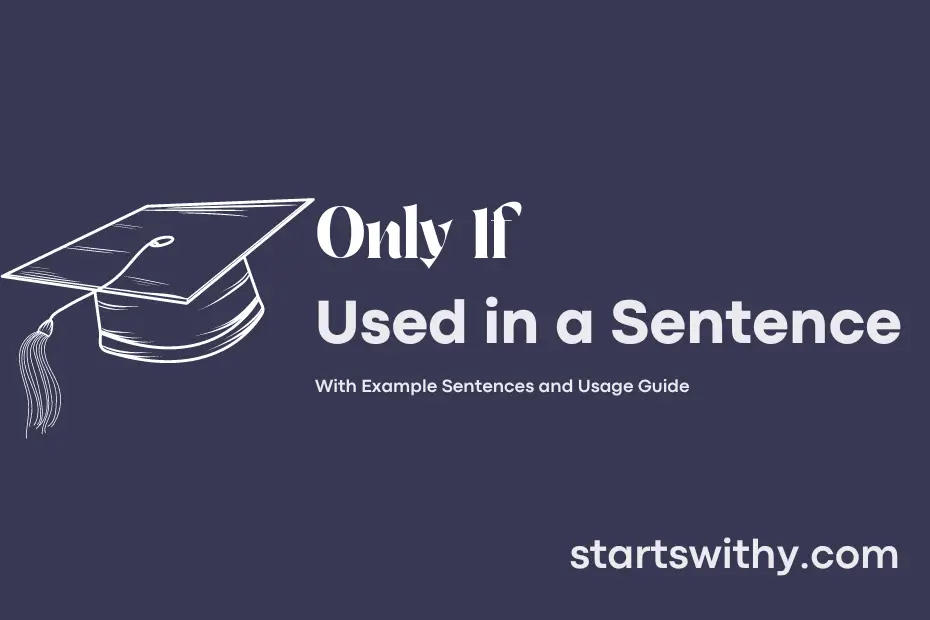Have you ever wondered about the specific conditions under which something can happen? When it comes to English grammar, the phrase “only if” is key in signaling a crucial requirement for a certain outcome.
“Only if” is a phrase used to introduce a condition that must be met for a particular result to occur. By including “only if” in a sentence, you are emphasizing that something can happen solely under the stated circumstances.
7 Examples Of Only If Used In a Sentence For Kids
- Only if you finish your breakfast, you can have a chocolate.
- You can go out to play only if you finish your homework.
- You can watch TV only if you clean up your toys.
- You can have dessert only if you eat your dinner.
- You can wear your favorite dress only if you clean your room.
- You can play with your friends only if you share your toys.
- You can have a story before bed only if you brush your teeth.
14 Sentences with Only If Examples
- You can attend the concert only if you finish your assignment on time.
- You can have a late night out only if you inform your roommate beforehand.
- You can join the music club only if you have a passion for singing or playing an instrument.
- You can borrow my notes only if you return them before the exam.
- You can skip class only if you have a valid reason and inform your professor.
- You can use the library study room only if you book it in advance.
- You can participate in the college fest only if you register for the events on time.
- You can submit your research paper only if you adhere to the formatting guidelines.
- You can attend the workshop only if you pay the registration fee.
- You can get a student discount only if you show your college ID card.
- You can join the sports team only if you pass the tryouts.
- You can stay in the hostel during holidays only if you inform the warden.
- You can get your exam paper reevaluated only if you submit a written request.
- You can access the online library resources only if you log in with your college credentials.
How To Use Only If in Sentences?
Only If is a phrase that indicates a condition that must be met for something else to happen or be true. When using “Only If” in a sentence, it is important to remember that the condition mentioned is essential for the outcome to be possible.
Here is a simple guide on how to use “Only If” in a sentence:
-
Placement: “Only If” typically comes at the beginning of a sentence, followed by a comma to separate the condition from the outcome.
-
Condition: The condition that follows “Only If” is the requirement that needs to be fulfilled for the outcome to occur.
-
Outcome: The outcome is the result of meeting the condition stated after “Only If.”
-
Example: Only if you study hard, will you pass the exam. (Condition: studying hard, Outcome: passing the exam)
-
Negation: Switching the order of the condition and the outcome is also acceptable, with the condition placed after “Only If” and the outcome preceding it.
-
Example: Only if you pass the exam, will you study hard. (Condition: passing the exam, Outcome: studying hard)
Remembering these guidelines will help you effectively use “Only If” in a sentence to convey a conditional relationship between two events or conditions.
Conclusion
In conclusion, sentences using “only if” express a condition where one action is dependent on another. Whether in everyday conversations or formal writing, these statements are used to specify a requirement that must be met for a desired outcome to occur. For example, “I will go hiking only if the weather is good” clearly indicates that the speaker’s decision is contingent upon favorable weather conditions.
By employing sentences structured with “only if,” individuals can communicate conditions, limitations, or prerequisites effectively. They serve as a simple way to convey dependencies and make it clear that a particular action or result hinges on a specific circumstance being met. Utilizing “only if” phrases can enhance clarity and help ensure mutual understanding in various contexts and situations.



